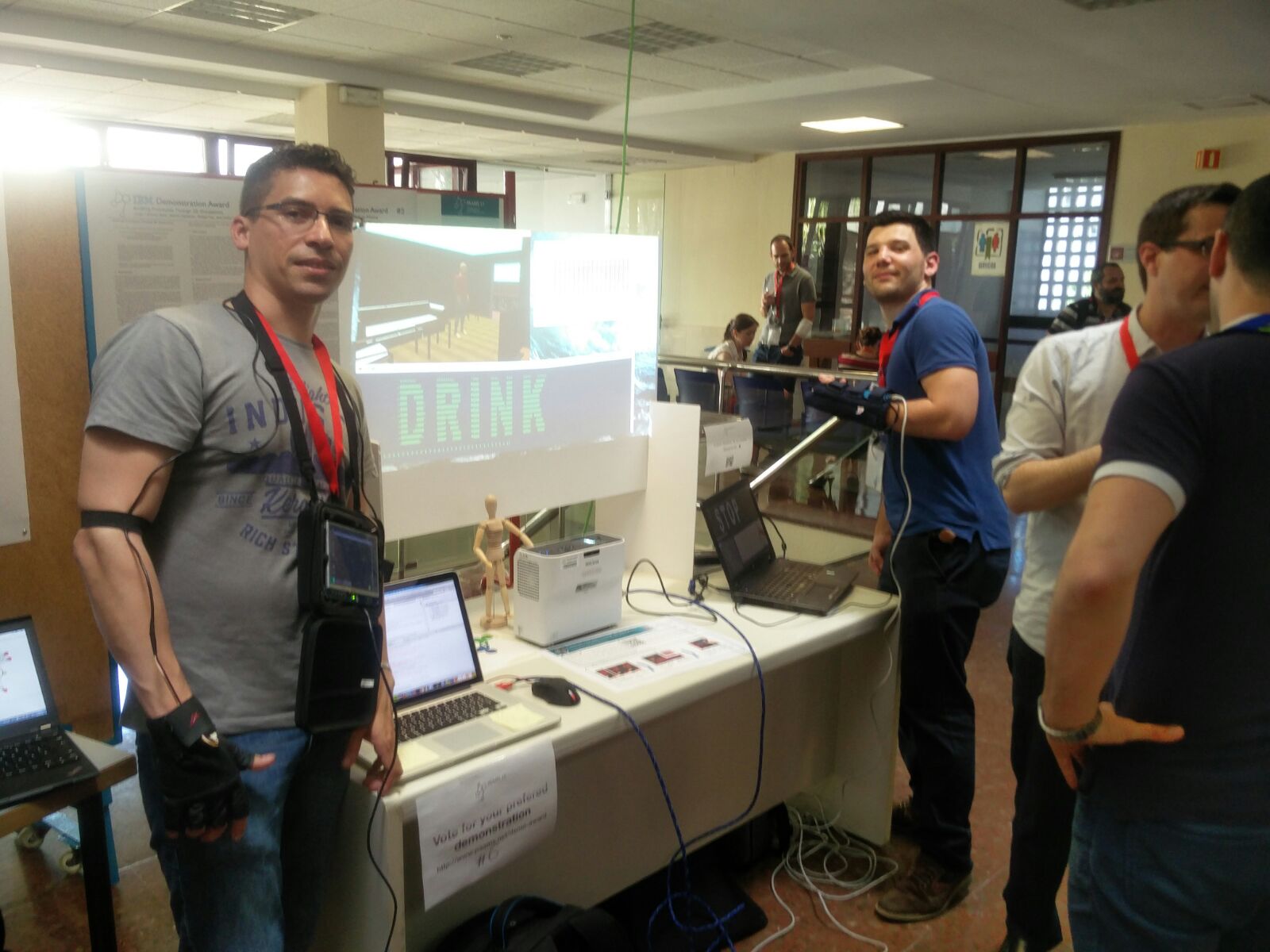The conference Practical Applications of Agents and Multi-agent Systems (PAAMS) celebrates a demo track context where researchers show their research results in a more interactive way. Instead of reading a paper, you have the chance to discuss the invention and see how it works. For the researcher, this is a good exercise to explain the project in five minutes to interested people.
This kind of sessions attract many researchers and, since three years ago, the attraction has been increased due to the IBM sponsorship to the event. Henceforth, the quality of the demos increases and the competition too.
This year, researchers from the GRASIA group brought a work from projects ColoSAAL and MOSI-AGIL. The ColoSAAL project focuses on the colaborative modeling of the effect of diseases in the behavior of people. Within this line of research, advances were made into how to model som of the effects of alzheimer into the human behavior. In this line of research, it became evident the need of recognising activities through the use of limited information in order to preserve the user’s privacy, as sensors of the accelerometer kind. A proof of concept was devised that shown how an activity recognition device could be designed. We started with the Ambient Intelligence Development Environment (AIDE) to virtually analyse the problem through simulations. AIDE provided the simulations and the data feeds that an algorithm had to study in order to determine the on-going activity. When we had something working with the simulations, the effort was moved towards creating a physical prototype with microcomputers such as Beagle Bone Black. In the demo, it was shown how the same software used in AIDE for analysing the information was running too in the Beagle Bone Black device. The system was tested also into two environments. An isolated one with a single character, based on ColoSAAL, that aimed to recognise three different gestures; and another based on MOSI-AGIl, that tracked a simulated actor in a 3D crowd simulation.
The picture shows the two PhD researchers, Marlon Cárdenas y Rafael Pax, during the demo. The demo was finally awarded by the audience with the first price. There are more pictures of the event at the PAAMS site.



